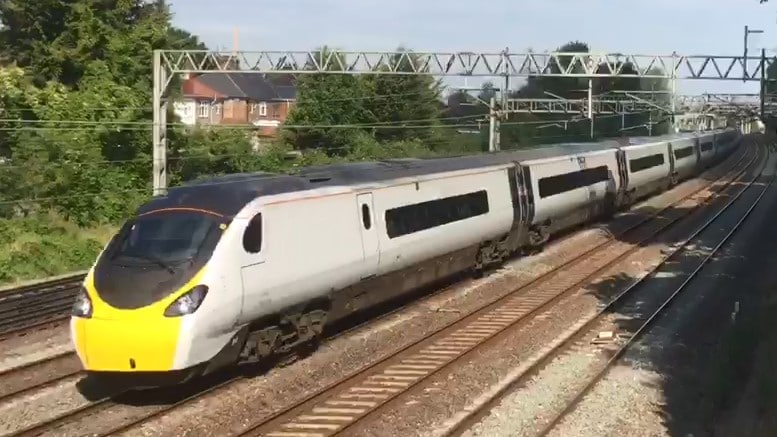
For the first time, Avanti West Coast has operated its Pendolino fleet without power under damaged overhead wires to keep to its planned timetable.
Following the discovery of a defect with the overhead line equipment (OLE) near North Wembley, trains have been coasting through the damaged section with their pantographs down, saving thousands of delay minutes and minimising disruption on the West Coast main Line.
In normal circumstances, electric trains would be unable to pass through these affected areas, as they could destroy the already damaged OLE, causing extensive disruption. But Avanti worked with Network Rail to arrange for its electric Pendolino trains to coast underneath the damaged section, lowering the pantograph so that it was no longer in contact with the wires. This allowed trains to move for just over three miles using their own momentum, without traction power, at a speed of 80mph.
Once the train passed the affected area (Harrow & Wealdstone to Wembley Central), drivers simply raised the pantograph to restore power to the train, continuing their journey with speeds of up to 125mph. Due to a backup facility on the Pendolino train, power is still available onboard the train when it is coasting.
This temporary solution, which was in place for five days, enabled Avanti West Coast to operate a full timetable until Network Rail, which is responsible for the overhead wires, could arrange a permanent fix.
When the damage to the wires was first detected, a speed restriction of 20mph was imposed to reduce the risk of further damage to the OLE. By making use of the ability to coast, trains could travel at a much faster speed – significantly reducing the impact to customers and saving thousands of delay minutes.

Gus Dunster, executive director of operations at Avanti West Coast, said: “Working with Network Rail, we adapted our response to the overhead wire issues near North Wembley by coasting – a technique we’ve been trialling that enables our Pendolino trains to move along the line without electrical power. This is the first time we have used coasting to operate a full timetable and is a great example of our collaborative efforts to put customers at the heart of everything we do.
“By utilising our ability to coast we were able to keep our trains moving through the affected area, minimising the impact to customer’s journey and preventing further damage to the overhead wires.”

Phil Barnes, head of operations at Network Rail, said: “Last month, condition monitoring equipment on a London Northwestern Railway train alerted us to a fault on the overhead line equipment in the neutral section in North Wembley.
“North Wembley is a complex part of the West Coast main line. There are several crossovers for freight and passenger trains and (pre-Covid) about a thousand train movements a day. In order to complete our repairs, we need to close all six lines for at least 10 hours.
“Working with Avanti West Coast and London Northwestern Railway, we arranged for trains to coast on the fast lines through the impacted area until we could complete the repairs overnight on the Saturday. This kept trains moving and minimised disruption to passengers.”
The defect with the OLE resulted in 1,385 delay minutes. An additional 196 delay minutes were caused by initial issues with the coasting operation. In comparison, a dewirement at North Wembley in March resulted in 9,100 delay minutes to Avanti West Coast customers (when coasting was not used). Therefore, the method of coasting saved around 7,500 delay minutes.


Be the first to comment